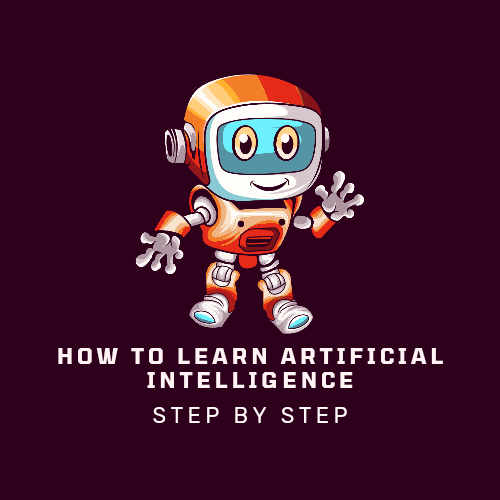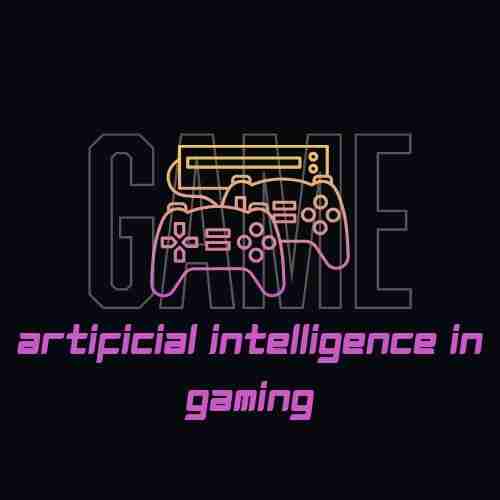Explore the transformative impact of Artificial Intelligence in gaming through in-depth examples and case studies. Discover how Artificial Intelligence in Gaming elevates player engagement, influences critical reception, and contributes to the success of games. Dive into real-world applications and understand the role of AI in creating dynamic, immersive gaming experiences.
Introduction of Artificial Intelligence in Gaming
In the ever-evolving realm of gaming, the integration of Artificial Intelligence (AI) has become a game-changer, reshaping the landscape of interactive entertainment. This exploration delves into the intricate tapestry of Artificial intelligence in gaming, where algorithms and machine learning converge to redefine how players engage with virtual worlds. From dynamic enemy behavior to lifelike simulations, this journey unpacks the transformative impact of AI through detailed examples, case studies, and a closer look at its influence on player experiences, critical reception, and overall success in the gaming industry. Join us on this quest to unravel the complexities and innovations at the intersection of artificial intelligence and gaming.
Definition of Artificial Intelligence in Gaming
Artificial Intelligence in gaming refers to the utilization of sophisticated computational algorithms and machine learning techniques within the gaming environment. The primary objective is to replicate intelligent behaviors and decision-making processes, creating a more dynamic and immersive gaming experience. In simpler terms, AI in gaming involves the integration of algorithms that allow game characters, non-player characters (NPCs), and the game environment itself to exhibit adaptive, responsive, and intelligent actions based on player interactions.
AI in gaming extends beyond conventional scripted responses, introducing a level of complexity that mirrors human-like decision-making. These algorithms analyze player inputs, learn from interactions, and dynamically adjust the gaming environment, creating scenarios that feel more lifelike and challenging.
Key aspects of AI in gaming include procedural content generation, dynamic NPC behavior, personalized gaming experiences, and adaptive gameplay. It plays a crucial role in shaping the narrative, enhancing graphics, and optimizing various elements of game design. The ultimate goal is to provide players with a more engaging, realistic, and tailored gaming experience through the application of advanced AI technologies.
Importance of Artificial Intelligence in Gaming
- Discussing the pivotal role Artificial Intelligence plays in enhancing various aspects of gaming.
- Emphasizing its contribution to creating dynamic, immersive, and personalized gaming experiences.
Applications of Artificial Intelligence in Gaming
Player Personalization:
- Exploring how AI analyzes player preferences and behaviors to offer personalized gaming experiences.
- Examples of games implementing player personalization through AI algorithms.
Anti-Cheat Systems:
- Discussing the importance of fair play in multiplayer games.
- Exploring how AI-driven anti-cheat systems use machine learning to detect and prevent cheating behaviors.
Virtual Assistants in Gaming:
- Introducing the concept of Artificial Intelligence powered virtual assistants within gaming environments.
- Discussing how virtual assistants provide tips, strategies, and natural language interactions to enhance the gaming experience.
Virtual Characters and Non-Player Characters (NPCs):
- Insight into how AI shapes the behavior and interactions of virtual characters and NPCs.
- Examples of games showcasing advanced AI for more realistic and responsive character dynamics.
Procedural Content Generation (PCG):
- Exploring how AI-driven PCG revolutionizes game development by dynamically generating content such as landscapes, quests, and environments.
Advancements in Storytelling:
- Examining how AI is utilized to tailor narratives based on individual player choices.
- Discussing the significance of adaptive storytelling in creating unique and personalized gaming experiences.
Artificial Intelligence Driven Game Design and Development:
- Exploration of how AI is influencing the overall game design process.
- Discussion on how machine learning algorithms assist in optimizing game elements, mechanics, and balance.
Adaptive Gameplay:
- Examination of AI’s role in creating adaptive gameplay experiences.
- Highlighting the use of machine learning to adjust game difficulty, challenges, and environments based on player skill and preferences.
Procedural Content Generation:
- In-depth exploration of the impact of AI-driven procedural content generation.
- Examples of games leveraging procedural generation for dynamic and diverse content creation.
Benefits of Artificial Intelligence in Gaming:
Enhanced Player Experience:
- Delving into how AI contributes to creating more engaging and enjoyable gaming experiences.
- Discussing features such as personalized content, dynamic narratives, and responsive environments that elevate player satisfaction.
More Realistic and Immersive Gameplay:
- Examining how AI enhances the realism and immersion of gaming environments.
- Highlighting advancements in graphics, physics, and character behaviors that contribute to a more lifelike gaming experience.
Personalized Gaming Experiences:
- Discussing the role of AI in tailoring games to individual player preferences and playing styles.
- Examples of personalized content, adaptive challenges, and character interactions that cater to the unique preferences of each player.
Efficient Game Development:
- Discussing how AI streamlines the game development process, optimizing resource allocation and reducing production time.
- Highlighting the use of AI algorithms for automating repetitive tasks, allowing developers to focus on creativity.
Adaptive Learning and Challenges:
- Exploring how AI adapts game difficulty based on player performance, creating a more tailored and enjoyable experience.
- Discussing the balance between challenging gameplay and avoiding frustration through dynamic adjustments.
Innovative Game Design Possibilities:
- Uncovering how AI enables developers to explore innovative game design concepts.
- Discussing unconventional and groundbreaking game mechanics made possible by AI-driven technologies.

Challenges and Future Trends in Artificial Intelligence in Gaming:
Ethical Considerations:
- Exploring ethical challenges associated with AI in gaming, such as data privacy, bias, and the impact of AI on player behavior.
- Discussing the need for responsible AI development and the establishment of ethical guidelines within the gaming industry.
Artificial Intelligence and Augmented Reality/Virtual Reality (AR/VR):
- Examining the integration of AI with augmented reality (AR) and virtual reality (VR) technologies in gaming.
- Discussing how AI enhances immersive experiences in AR/VR environments and the challenges associated with this integration.
Future Possibilities and Innovations:
- Looking ahead at potential advancements in AI gaming, including the integration of more sophisticated AI algorithms.
- Discussing emerging trends such as AI-driven storytelling, enhanced natural language interactions, and the evolution of AI-powered virtual worlds.
Disadvantage of Artificial intelligence in gaming industry
- Privacy and Fairness Worries: Using Artificial intelligence in games can raise concerns about keeping player information private and ensuring fair treatment, as AI systems might unintentionally favor certain groups.
- Complex to Set Up: Putting AI into games can be tricky, especially for smaller game development teams who might not have the expertise or resources to handle the complexity.
- High Initial Costs: Getting AI into games can be expensive initially. This includes costs for advanced technology, skilled people, and thorough testing.
- Too Much Dependence: Relying too much on Artificial intelligence might limit creativity in game design, as developers might stick to Artificial intelligence driven patterns instead of exploring new ideas.
- Unintended Biases: Artificial intelligence algorithms might unintentionally bring in biases, affecting how the game plays and feels. This could create issues of fairness and inclusivity.
- Job Changes: As AI takes over some tasks in game development, it could lead to job changes or even job losses for certain roles.
- Security Concerns: Integrating AI introduces new security risks, like vulnerabilities in Artificial intelligence algorithms that could be exploited, potentially impacting the security of the gaming experience.
In short, while AI brings great benefits to gaming, we need to carefully manage these challenges for a better overall gaming experience.
Impact of AI on Game Economics:
1. Dynamic Revenue Models:
- AI-driven analytics and player behavior prediction enable dynamic pricing models.
- Games adjust prices based on player preferences, demand, and individual spending patterns.
- Increased revenue potential as dynamic pricing optimizes the value perceived by individual players.
- Enhanced adaptability to market fluctuations, leading to more sustainable revenue streams.
2. Microtransactions and Personalization:
- AI algorithms analyze player data to offer personalized in-game purchases.
- Dynamic pricing and targeted promotions optimize microtransaction revenue.
- Microtransactions become more player-centric, increasing the likelihood of purchases.
- Improved monetization through personalized offers, enhancing overall revenue.
3. Player Retention and Subscription Models:
- AI assesses player preferences and behavior to tailor gaming experiences.
- Personalized content recommendations and adaptive challenges contribute to player retention.
- Enhanced player loyalty due to personalized gaming experiences.
- Subscriptions and recurring revenue models benefit from sustained player engagement.
4. Procedural Content Generation for Cost Efficiency:
- AI-driven procedural content generation reduces manual design efforts.
- Games leverage AI to create diverse content, optimizing development costs.
- Cost-effective game development, reducing the time and resources required.
- Economies of scale as AI-generated content contributes to larger, more expansive game worlds.
5. Enhanced Player Acquisition Strategies:
- AI algorithms analyze player data to identify effective acquisition channels.
- Targeted marketing and personalized recommendations attract specific player segments.
- Improved return on marketing investment through more effective player targeting.
- Increased efficiency in player acquisition, optimizing acquisition costs.
6. Adaptive Difficulty for Player Satisfaction:
- AI assesses player skill levels and adjusts game difficulty in real-time.
- Players experience personalized challenges, contributing to overall satisfaction.
- Higher player satisfaction leads to positive reviews and word-of-mouth marketing.
- Retention of players who find the game challenging yet enjoyable, enhancing long-term revenue.
7. AI-Enhanced Virtual Economies:
- AI governs virtual economies, adjusting in-game prices and supply based on player interactions.
- AI-driven market simulations contribute to a more dynamic virtual economics
- Increased player engagement in virtual economies, leading to in-game transactions.
- Economic simulations add depth to gameplay, attracting players interested in virtual markets.
In Summary:
The integration of AI into game economics has fundamentally altered the industry’s landscape. From personalized microtransactions to dynamic pricing models and cost-effective content generation, AI contributes to revenue optimization and player satisfaction. As the gaming industry continues to evolve, the economic impact of AI becomes increasingly integral to sustainable and innovative business models.
F.E.A.R. (First Encounter Assault Recon) – Dynamic Artificial intelligence Behavior
Implementation of AI:
- F.E.A.R., a first-person shooter, utilized advanced AI to create dynamic and adaptive enemy behavior.
- The AI-controlled enemies showcased realistic responses to player actions, such as taking cover, flanking maneuvers, and coordinated team tactics.
Impact on Success:
- F.E.A.R. received critical acclaim for its intense and immersive gameplay, with the dynamic AI contributing significantly to the game’s success.
- The innovative AI implementation set a benchmark for realistic enemy behavior in first-person shooters.
Player Engagement:
- The dynamic AI kept players on their toes, fostering a heightened sense of tension and urgency.
- Player engagement was sustained through unpredictable encounters, encouraging strategic thinking and experimentation.
Critical Reception:
- Critics praised F.E.A.R.’s AI as groundbreaking, highlighting its impact on overall gameplay.
- The game’s success was attributed, in part, to the AI-driven intensity, earning positive reviews for innovation and player experience.
The Sims Series – Artificial intelligence Driven Simulations
Implementation of AI:
- The Sims series leveraged AI to simulate virtual life, with autonomous characters making decisions based on their needs, personalities, and interactions with the environment.
- The game’s AI system governed various aspects, including social interactions, career choices, and daily routines.
Impact on Success:
- The Sims became a cultural phenomenon, achieving immense success due to its unique AI-driven life simulation concept.
- The game’s success extended beyond traditional gaming audiences, attracting a diverse player base.
Player Engagement:
- AI-controlled characters in The Sims exhibited diverse and realistic behaviors, creating a compelling and immersive virtual world.
- Player engagement stemmed from the ability to influence and observe the AI-driven lives within the game.
Critical Reception:
- The Sims received widespread acclaim for its innovative use of AI, offering players unprecedented freedom in shaping virtual lives.
- Critics lauded the game’s ability to create a sandbox experience driven by dynamic AI interactions.
Hitman Series – Artificial intelligence Enhanced Stealth and Adaptability:
Implementation of AI:
- The Hitman series employed AI to enhance the stealth and adaptability of non-player characters (NPCs).
- AI-controlled NPCs showcased complex routines, reactions to the environment, and adaptability to the player’s choices.
Impact on Success:
- Hitman games achieved success by offering players a sandbox of possibilities, driven by the realistic and responsive AI.
- The open-ended gameplay, influenced by AI behavior, contributed to the series’ longevity.
Player Engagement:
- AI-driven NPCs in Hitman responded dynamically to the player’s actions, creating a living, breathing world.
- Player engagement was heightened as each mission became a puzzle to solve, with AI intricacies adding layers of complexity.
Critical Reception:
- The Hitman series received praise for its innovative use of AI in creating immersive and replayable stealth experiences.
- Critics noted the game’s success in delivering a rich, dynamic environment shaped by AI-driven NPC interactions.
Analyzing the Common Threads:
- Innovation in Gameplay: All three examples showcase how AI innovation led to groundbreaking gameplay experiences, setting these games apart from their peers.
- Positive Critical Reception: The critical acclaim for these games emphasizes the positive correlation between effective AI implementation and favorable reviews.
- Diverse Player Engagement: Whether through dynamic enemy encounters, life simulations, or adaptive NPCs, the AI-driven elements enhanced player engagement by providing unique and immersive experiences.
Conclusion:
In conclusion, the impact of artificial intelligence on the gaming industry is undeniable, ushering in a new era of innovation, immersion, and personalized experiences. As we’ve explored the applications and benefits of AI in gaming, it’s evident that this technology has transformed not only how games are designed and developed but also how players engage with and experience virtual worlds.
Despite the numerous advantages, challenges loom on the horizon, particularly concerning ethical considerations and the responsible integration of AI. Addressing issues related to data privacy, bias, and the potential influence on player behavior is crucial for the sustainable growth of AI in gaming.
Looking to the future, the convergence of AI with augmented reality and virtual reality promises even more immersive and lifelike gaming experiences. As technology advances, the gaming industry is poised to explore unprecedented possibilities, from AI-driven storytelling to innovative game mechanics that push the boundaries of what is achievable.
In this dynamic landscape, continued collaboration between developers, ethicists, and the gaming community is essential to navigate the challenges and seize the opportunities presented by artificial intelligence. As AI continues to evolve, the gaming industry stands at the forefront of technological innovation, providing players with experiences that transcend the boundaries between reality and virtual worlds.


1 thought on “Artificial Intelligence In Gaming Industry”